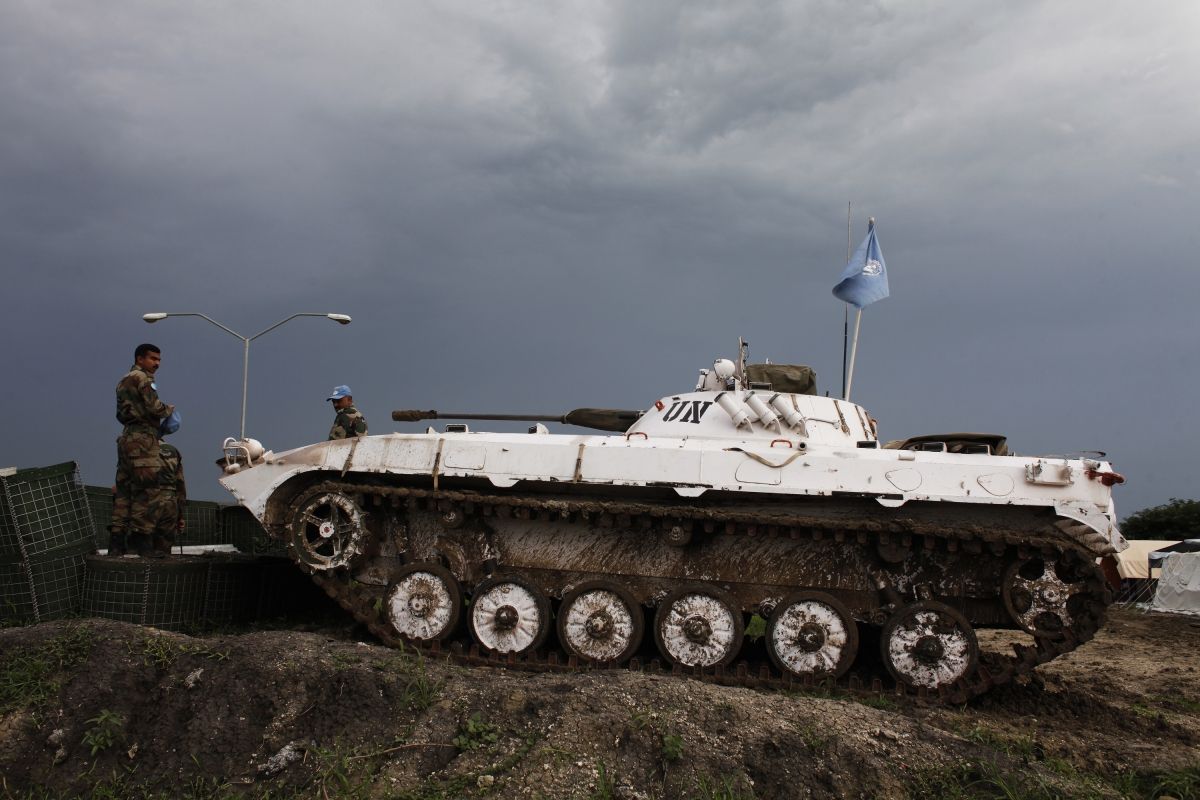
An advance party of peacekeepers empowered to use force to protect civilians has arrived in war-torn South Sudan, the United Nations said Monday. The peacekeepers are part of a 4,000-member U.N. contingent expected to arrive in the country in the next few months.
The 13-member group will provide support for engineering operations and help to prepare camp sites for the rest of the peacekeepers, a spokesperson for the U.N. mission in South Sudan (UNMISS) told the Associated Press.
The U.N. Security Council authorized the 4,000-strong force in August 2016, after fighting between government troops and rebels loyal to ousted vice-president Riek Machar killed at least 272 people in the capital Juba in July.
The troops will provide protection to key facilities in Juba and the main routes into the city, UNMISS said in a statement on Saturday. They will also strengthen the security of U.N. premises.
The additional troops will join an existing 12,500-strong peacekeeping contingent tasked with protecting civilians in South Sudan, where a civil war erupted in 2013. At least 7,000 of the peacekeepers were originally deployed in 2011 to help "consolidate peace" in the country after it gained independence from Sudan earlier that year.
The latest arrivals reached South Sudan as the U.N. urged warring sides to cease hostilities on Saturday to allow safe access to civilians. The U.N.'s call comes after South Sudanese militias were accused of killing at least 10 people in the northwestern town of Wau on April 10, with rights groups raising concerns that ethnic cleansing might be taking place.
War broke out in South Sudan in 2013 when President Salva Kiir, who belongs to the Dinka ethnic group, fired his deputy—and now rebel leader—Machar, who belongs to the country's other major ethnic group, the Nuer. The conflict has led to clashes between Dinka forces and Nuer rebels loyal to Machar, claiming at least 50,000 lives and displacing millions.
The U.N. has repeatedly warned that South Sudan is on the verge of a "Rwanda-style" genocide, referring to the mass killings targeting Tutsi and moderate Hutu in Rwanda in 1994 that resulted in at least 800,000 deaths.
Kiir and Machar have agreed on several peace deals, the most recent signed in August 2015. However, troops loyal to both sides have failed to observe the ceasefires.
Both sides have been accused of committing crimes against humanity, including extrajudicial executions, torture, rape and the use of child soldiers. In February, a top army general resigned after accusing the government of carrying out ethnic cleansing, something Juba has denied.
The conflict has displaced millions of people, with the U.N. calling it "the largest refugee crisis in Africa."
Earlier this year, both the government and the U.N. declared a famine—the first anywhere since 2011—in Unity State, where at least 100,000 people are facing hunger.
Uncommon Knowledge
Newsweek is committed to challenging conventional wisdom and finding connections in the search for common ground.
Newsweek is committed to challenging conventional wisdom and finding connections in the search for common ground.





